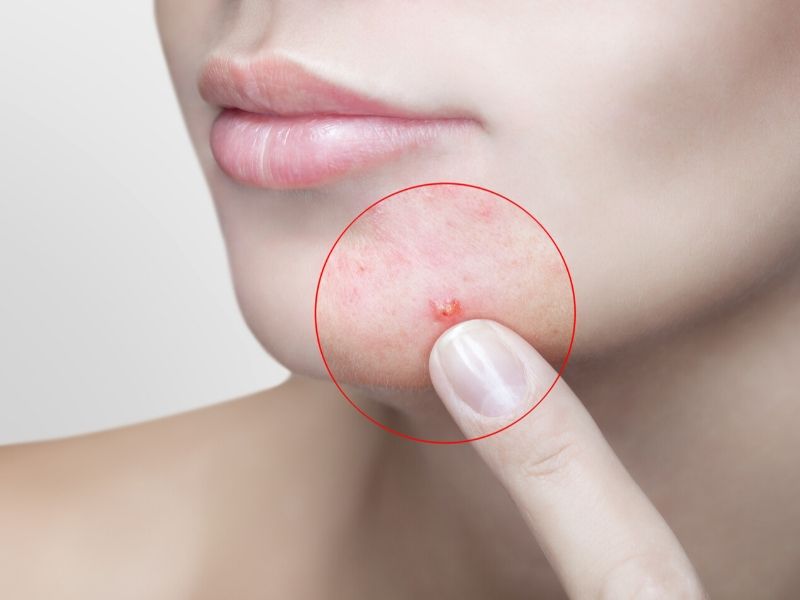Dermatology – Combined Treatments

About
Acne
(including congestion/open pores)
Acne is more than just skin deep. For many people, it can take a high emotional toll. Resulting in the loss of self-confidence, self-esteem, depression and anxiety.
Acne can occur at any age but adolescents are the most common sufferers. The onset of puberty brings about major physical, mental and emotional change.
Read more
Not to mention the many psychological, social and image issues that many of our teenagers may be facing, which left untreated, can leave lifelong physical and emotional scars.
Acne causes
- Hormones.
- Sebaceous gland blockage. The skin cells lining the upper part of the hair follicle duct do not shed as normal but accumulate and form a plug (Comedone) causing thickened skin with trapped oil and dead skin cells.
- Bacteria and inflammation. One type of bacteria that is specifically linked with acne is (Propionibacterium acnes – P acnes). We all have P acnes in our skin, yet not all of us suffer from acne.
- Genetics.
- Medications. May be caused by some medications like corticosteroids, anabolic steroid use.
- Stress. Adrenal glands produce more androgens when an individual is stressed. This can make acne worse.
- Diet. Certain foods can be contributory factors towards the development of acne. Foods with high levels of toxins, as well as acid-forming.
- Environment. Hot, humid environments, working with oil and grease, use of thick or oily moisturisers, cosmetics or sunscreens can aggravate acne.
- Incorrect Skincare.
Acid mantle is a unique micro-flora which covers the entire surface of our skin. Over time the use of harsh abrasive products can damage the acid mantle and imbalance PH of the skin. This is why it is really important that your skincare products are formulated without strong astringents. As some astringents have a tendency to upset the delicate micro. However, they still need to be active and effective enough to assist your skin to function properly.
Conventional skin treatments work from the “outside-in” resulting in some short-term relief, but rarely a total solution to the problem.
Additionally, medications that are used to suppress inflammation can drive pathogens deeper into the body. Or promote health issues to other parts of the body, sometimes with terrible side effects.
How we can help?
Acne is often complex, involving internal and external factors. Our approach to treating acne will vary from person to person, as each individual is unique. It will also depend on how severe and persistent your acne is. A holistic, multifaceted approach is required to achieve best results by combining professional skin treatments, appropriate topical and supplements, laser treatments and lifestyle modifications.
We call this natural dermatology, holistic dermatology, alternative dermatology or integrative dermatology.
About
Eczema
Eczema is an itchy, red rash that can appear all over the body and in particular, occurs among people who have very dry, sensitive skin.
The skin can even blister and crack in some cases.
Read more
Whether eczema is acute or chronic, it is essentially an inflammation of the skin. Thus to treat this, we need to reduce the inflammation.
There are different types of eczema. And whilst there is no known cure for eczema, in most cases, it is very manageable.
Symptoms of eczema include
- Dry, sensitive skin
- Intense itching
- Red, inflamed skin
- Recurring rash
- Scaly areas
- Rough, leathery patches
- Oozing or crusting
- Areas of swelling
- Dark coloured patches of skin
How we can help?
We treat from the inside out. It’s very rare that eczema can be managed successfully with topical treatment alone. True healing comes from within, therefore a variety of testing may be used to identify underlying causes.
About
Psoriasis
Psoriasis is an inflammatory skin condition.
Psoriasis is the most prevalent autoimmune disease.
Somehow, the immune system is mistakenly triggered to speed up the growth cycle of skin cells, so your skin cells are constantly renewing themselves.
Read more
With Psoriasis, new cells are growing while old cells die and shed off from the surface of the skin. Causing a build-up of excess skin cells on the surface that form a thick silvery patch. These patches are dry, flaky skin called plaques.
Symptoms
- Red scaly patches on the skin. Anywhere on the body (commonly on knees, elbows and scalp).
- Itchiness and flaking of the skin.
- Psoriasis can also affect the nails and may cause arthritis (psoriatic arthritis).
Possible Triggers and causes
- Genetic predisposition
- Bacteria or viruses
- Nutrition
- Toxicity
- Digestion
- Stress
- Lifestyle
How we can help?
It’s very rare that psoriasis can be managed successfully with topical treatment alone.
True healing comes from within.
About
Rosacea
Rosacea is a vascular skin disorder that is caused by the breakdown of the lymphatic and the skin’s immune system.
This results in the small surface blood vessels (capillaries) of the skin to enlarge which gives the skin a permanent flush appearance around the cheeks and nose area.
Read more
This may progress to small acne-like lumps on the surface of the skin.
Signs and symptoms of Rosacea
Not every person with rosacea has the same signs and symptoms.
Symptoms include
- Persistent facial redness, flushing (erythema).
- Visible blood vessels.
- Acne-like breakouts and sensitivity.
- Stinging, burning or other facial discomforts.
- Thickening/swelling of the skin on the nose known as Rhinophyma.
- Eye redness, swelling or redness around the eyes (ocular rosacea).
Triggers that can cause Rosacea to flare up
- Genetic factors.
- UV exposure.
- Wind, hot or cold environments.
- Certain medical conditions.
- Some medications.
- Irritants in skincare and sunscreen products.
- Hot beverages like coffee and tea.
- Alcohol, spicy food.
- Food intolerance, such as yeast, wheat, dairy.
- Overactive immune system.
- Emotional triggers – stress and anxiety.
- Gut imbalances.
- Demodex mites (Demodex Folliculorum). A mite that lives in hair follicles and is believed to clog oil glands and get into the capillaries network leading to inflammation.
- Helicobacter Pylori. A bacterium that causes intestinal infection. Recently believed to be another contributing factor to Rosacea.
How we can help?
Rosacea is not a condition that will heal by itself. Left untreated, the condition will worsen. Early treatment is the key.



